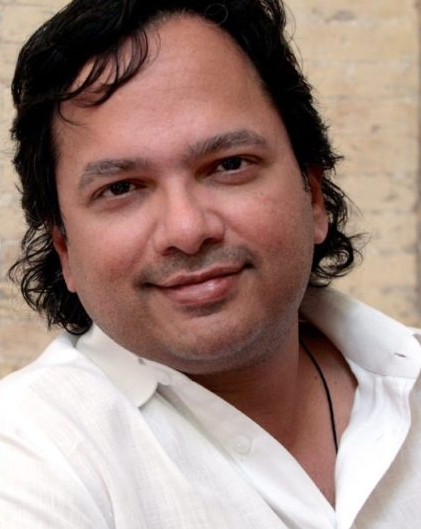Vikram Chandra talks to SUBASH JEYAN about Indian writing in English, his new novel Sacred Games and more
(Published in The Hindu Metroplus on August 17, 2006.)
For someone who had read not just his novels but also his defence of himself, his craft and Indian writing in English in general against ‘attacks’ from some eminent names in the academia, Vikram Chandra in person is a surprise. Unassuming, quietly confident and calmly expressive, he is very different from the mental picture one had built of him from his writings, especially the polemical pieces.
He smiles when reminded about the critical, and sometimes not so critical, debate that he had with Rajeswari Sunder Rajan and others over Indian writers writing in English and the question of authenticity and belonging. Five years down the line, he still feels that English is, for all practical purposes, an Indian language and that the debate over the language in which one writes is largely irrelevant.
He still feels that the idea of a ‘regional’ writer as someone who is more in touch with Indian realities is just a rhetorical device employed to dismiss those writing in English. A writer, in whatever language he writes in, can be good or bad. Nothing else matters.
So we move on to talking about his novels and his love for playing and experimenting with forms. A novel’s form, he says, emerges from the story itself. In Red Earth and Pouring Rain, his first novel, for example, the narrative, which extends itself through the mechanism of having an almost infinite number of stories within stories, is an echo of the Indian conception of time as having no beginning or end, of time as a series of cycles.
He elaborates: “When I found the James Skinner story, in the conception of the sense of the self that Skinner had, he and other people like him existed within an epic world. They saw themselves as part of that conception and what was coming in was a different kind of the sense of the self, a different kind of narrative altogether. I became interested in the clash between these two narratives and then it became part of the explicit content, the concern with Aristotle and the post-Freudian sense of the self that exists in the West today. And then the other kind of prolonged storytelling we have here, seemed to naturally grow from that.”
Dynamic medium
Unlike Naipaul, he feels that the novel is a thriving, dynamic medium, full of possibilities. “Naipaul talks about the limitations of the novel as a form because in his mind it belongs to what he seems to think of as 19th Century England, you know, and he seems to despair even in the modern world of the novel being able to represent post-modern realities.
“You keep hearing this argument that the novel is dead. I am baffled by that. Because if you look at the history of the novel, it is an elastic thing that has existed cross-culturally for centuries with lots of variations in that tradition. The novel still seems to be healthy; more novels are being published now than ever before in the history of the human race. “But, if you believe that the psychologically real novel is the only novel that one can write or should write, then you are probably in despair.”
Even as psychological realism emerged, with its bourgeois sense of the self, he points out, it was accompanied by the Gothic and the fantastic. “I think that is the interesting position of the novel in India,” he says. The Indian novel in English, according to him, has rich possibilities because of the potential it has of extending the novel beyond the Western bourgeois, post-enlightenment narratives and its conception of the individual and the world.
You point out that Love and Longing in Bombay to an extent and Sacred Games certainly work within the tradition of realism. “But I hope I have expanded enough at the edges to contain these other kinds of selves,” he says. “And I think that’s one of the interesting things about various kinds of traditional Indian cinema too because if you watch commercial cinema from any region in India, what I find fascinating is that on one level it utilises the techniques of realism. Often they will use documentary techniques but at the same time, suddenly, they will jump into some sort of epic storytelling mode and the character will become larger than life.”
So, now that Sacred Games is out, after more than seven years in the making, what next? Anything but work, he says. “I am taking a conscious holiday and trying not to think about writing. Also when you are on a project your reading too gets structured. You can’t read what may be an enjoyable book because there may be six other books, which need to be read for the project. I think now I just want to indiscriminately pick up books and just enjoy myself.”
Any particular author he enjoys reading? He reads extensively, he says, but does mention Manju Kapur and Kiran Desai as authors he likes reading.

